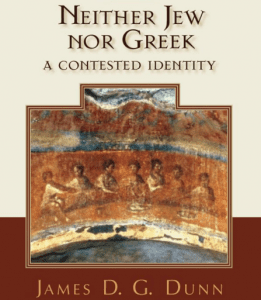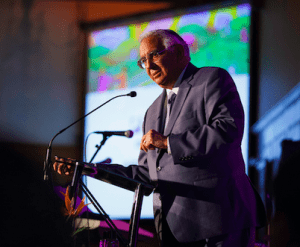Often on Sunday afternoon I post a brief review/report of a book, and I’m open to having you send me reviews like this one — brief, descriptive, suggesting how a book could be used by others.
The scholarly quest for Jesus, which exploded into proposal after proposal in the 80s and 90s, has a parallel quest among some scholars of Muhammad. Thanks to F.E. Peters, Jesus and Muhammad: Parallel Tracks, Parallel Lives, this parallel questing has been sketched. Peters is Emeritus Professor at New York University, and is known as a scholar of religions.
 There are parallels between Jesus and Muhammad: both spoke with prophetic clarity in light of a crisis and End, and both experienced a denouement. Their teaching themes — sketched with clarity by Peters — are set alongside one another, and Peters has the ability to avoid overdoing too much pluralistic overlap. He doesn’t pretend, as so many progressives want to do today, that Jesus and Muhammad, when it all boils down, are much the same. Instead, he’s analytical and sees the differences. Whether he sees enough is another issue.
There are parallels between Jesus and Muhammad: both spoke with prophetic clarity in light of a crisis and End, and both experienced a denouement. Their teaching themes — sketched with clarity by Peters — are set alongside one another, and Peters has the ability to avoid overdoing too much pluralistic overlap. He doesn’t pretend, as so many progressives want to do today, that Jesus and Muhammad, when it all boils down, are much the same. Instead, he’s analytical and sees the differences. Whether he sees enough is another issue.
Peters is a thoroughgoing skeptic about the historical reliability of the sources — and he also sketches both the Jewish and Arab contexts (where his skepticism is less present) to set up the sources — so he finds very little historical value in the birth and infancy and young adult narratives of either religious tradition.
He’s preoccupied with Q, and here he attaches himself to only one (minority) dimension of Gospel scholarship, and here had he applied his skepticism he would have had much, much less to say. In short, Q scholarship has powerful critics among contemporary scholars. Interestingly enough he sees in Q the same kind of text we see in the Quran, a collection of sayings. He’s also convinced of a radical (Schweitzerian) eschatology for Jesus, which oddly enough is denied by most of the purveyors of the Q hypothesis (!), and this shapes most of what he has to say about the message of Jesus. He is no less skeptical of the Muhammad traditions.
Question: What are the best studies you have seen that compare Christianity and Islam, or Jesus and Muhammad?
Muhammad, Peters argues, had a similar structure as did Jesus (because both are prophetic): repent/change before the Judgment. While Jesus had a predecessor and a tradition — John and the Prophets and Moses — Muhammad constructed a new reality though he leaned on the OT prophets. Peters sees Jesus as apocalyptic, Muhammad as prophetic; the End for Jesus is imminent but for Muhammad it is inevitable.
Muhammad, who moved from Mecca to Medina, became more than Constantine in the East: he was pope and emperor. His teachings and leadership led to the umma, the community that became Islam’s people.
There are major differences here, of course, not the least of which is that Christianity is about Jesus while Islam is about the Quran’s teaching, prophetically taught by Muhammad. Jesus was the Man-God. Muhammad was the Prophet. The Christian tradition became more or less iconic; the Muslim tradition was vehemently anti-iconic. Thus, the Muslim tradition is into decoration but not representation.
This is a good book, but the author’s skepticism diminishes so much evidence, not the least of which is belief in the atoning theory of Jesus’ death which can be anchored in Jesus’ own teachings, that otherwise would provide sharper comparative profiles of Jesus and Muhammad.
There’s more work to be done here, but this is a good place to start. Peters is to be commended for an elegant writing style.










